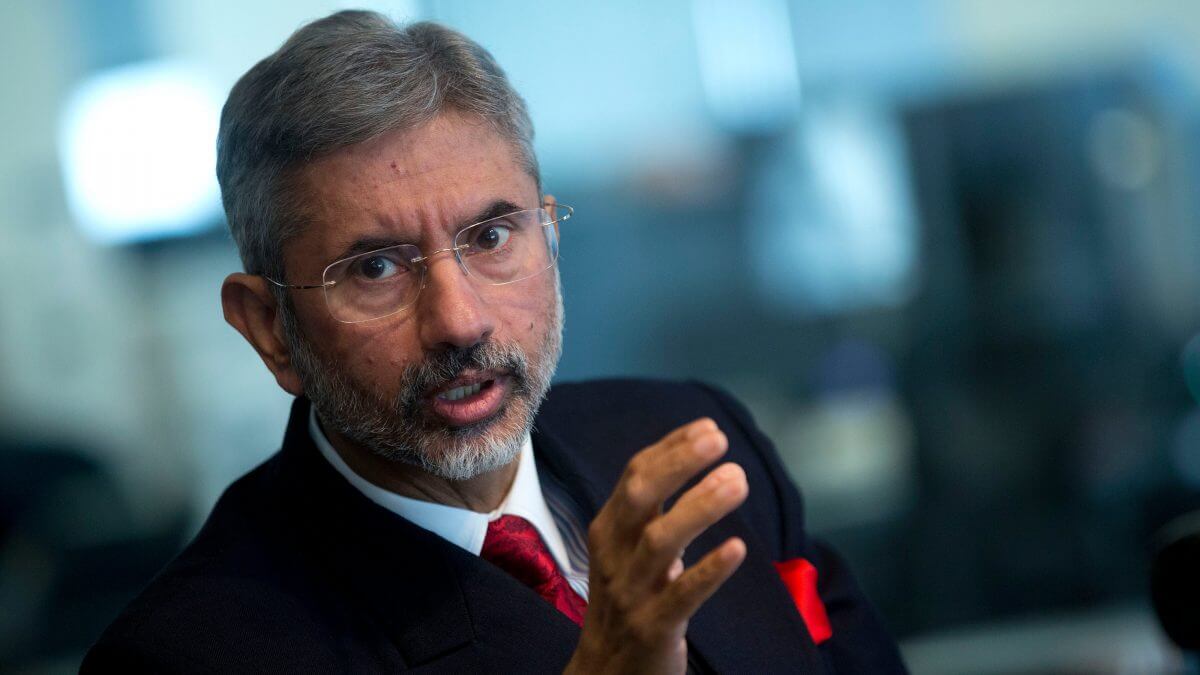On Monday, while addressing a virtual discussion hosted by the All India Management Association (AIMA), Indian External Affairs Minister S. Jaishankar spoke about several critical issues, including India’s policies on China, vaccine diplomacy, and the Indo-Pacific.
To begin with, referring to the Line of Actual Control (LAC), which is the Indian border with China, he blamed China for its unnecessary “provocation” in the region. Jaishankar said that while the two countries had maintained their commitment to peace and tranquillity along the border for over 40 years, which allowed the bilateral relationship to flourish despite the unresolved border issues, this status quo had been threatened by Chinese aggression last year. “The Chinese, without provocation, brought an enormous force to the border. This is not rocket science; you cannot disrupt peace & tranquillity at the border and carry on with the rest of the relationship,” he added. Moreover, he reiterated India’s commitment to de-escalation along the LAC, stressing that “there are no two ways about it.”
The minister also spoke strongly against the criticism being spewed against India’s “Vaccine Maitri” campaign, a “grant assistance programme” for COVID-19 vaccines through which India has been providing the much-needed India-produced jabs to less-developed countries across the globe. Through this initiative, along with its overall commitment to vaccine diplomacy, India has exported 64 million jabs to over 80 countries and has also been a key contributor to the World Health Organisation (WHO)-led COVAX facility, an international initiative that aims to provide equitable (and assured) access to COVID-19 vaccines to all member countries, regardless of their purchasing power status.
Jaishankar called the critics of the campaign “short-sighted”, further reaffirming India’s commitment to prioritising the vaccine needs of its own people. He also clarified that India was a critical part of the global supply chains of vaccines and could not block access to the rest of the world. He added that, in his capacity as foreign minister, he had been urging countries, specifically the more developed ones like the United States, to restart supplying raw materials necessary for India to continue its production of the jabs. This call, he said, was not possible to justify if India itself blocked the export of the vaccines.
He also reiterated India’s commitment to the “Atmanirbhar Bharat” campaign, which takes a “human-centric or employment-centric” approach. To further this initiative, he said that India needed to “build deeper strengths and capacities” that would also help mitigate challenges like the COVID-19 pandemic in the future.
Lastly, the minister spoke about the future of the “Quad” alliance and India’s strategy in the Indo-Pacific. Jaishankar reaffirmed that this grouping would not develop into another NATO-style alliance, but would instead focus on addressing the “unmet demands in the market.” He recalled that India had stayed away from alliances since its independence and would continue to do so. The Quad, he added, was a “common platform” between Australia, the United States, Japan, and India, to further their common interest. It is not a military alliance like NATO, he clarified.
On the same day, Jaishankar also spoke with US Secretary of State Antony Blinken to discuss “issues pertaining to health cooperation”. Official reports suggest that Jaishankar urged the American side to lift the ban on exports of critical raw material for vaccines during the discussion. The two leaders also discussed several regional and global issues of mutual concern, including the crises in Afghanistan and Myanmar.
Indian EAM Jaishankar Discusses Vaccine Maitri, China, & Quad Alliance at AIMA Conference
Speaking at the AIMA Conference, Indian External Affairs Minister S. Jaishankar spoke about border tensions with China, vaccine diplomacy. and the future of the Quad alliance.
April 20, 2021

SOURCE: BLOOMBERG
